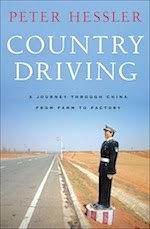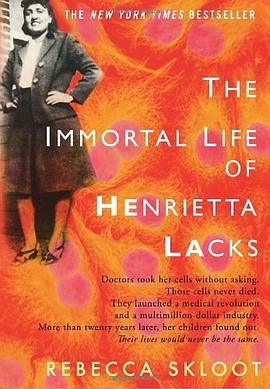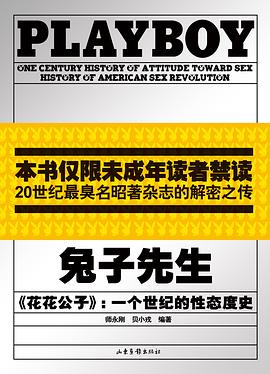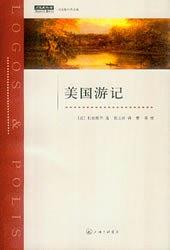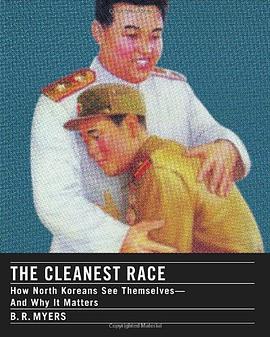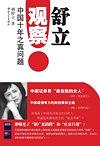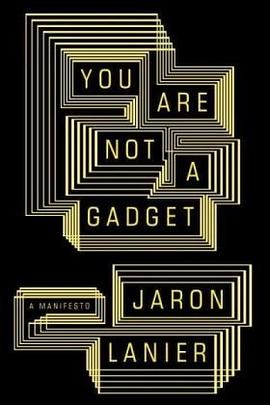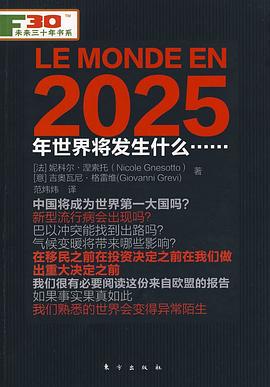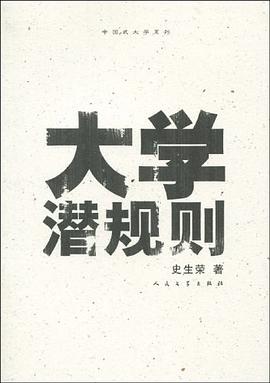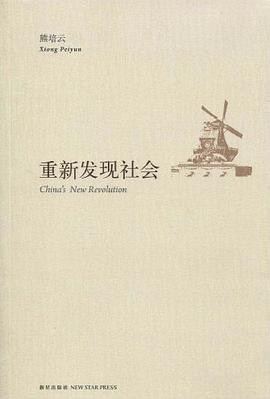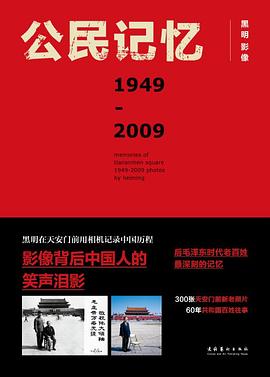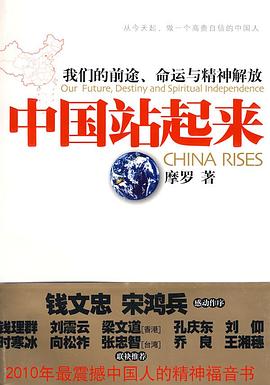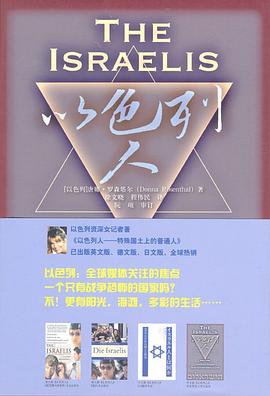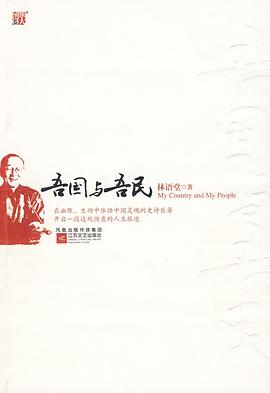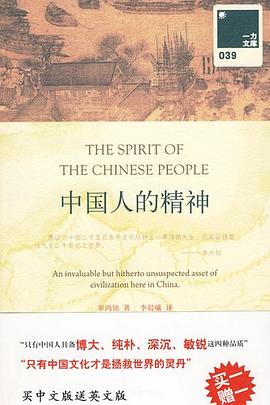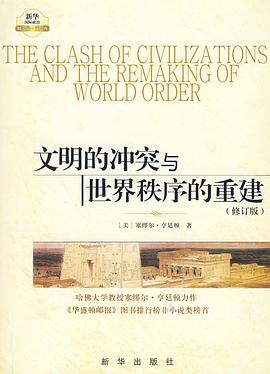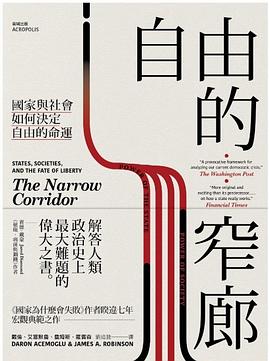

具体描述
Why is it so hard to make lasting changes in our companies, in our communities, and in our own lives?
The primary obstacle is a conflict that’s built into our brains, say Chip and Dan Heath, authors of the critically acclaimed bestseller Made to Stick . Psychologists have discovered that our minds are ruled by two different systems—the rational mind and the emotional mind—that compete for control. The rational mind wants a great beach body; the emotional mind wants that Oreo cookie. The rational mind wants to change something at work; the emotional mind loves the comfort of the existing routine. This tension can doom a change effort—but if it is overcome, change can come quickly.
In Switch, the Heaths show how everyday people—employees and managers, parents and nurses—have united both minds and, as a result, achieved dramatic results:
● The lowly medical interns who managed to defeat an entrenched, decades-old medical practice that was endangering patients.
● The home-organizing guru who developed a simple technique for overcoming the dread of housekeeping.
● The manager who transformed a lackadaisical customer-support team into service zealots by removing a standard tool of customer service
In a compelling, story-driven narrative, the Heaths bring together decades of counterintuitive research in psychology, sociology, and other fields to shed new light on how we can effect transformative change. Switch shows that successful changes follow a pattern, a pattern you can use to make the changes that matter to you, whether your interest is in changing the world or changing your waistline.
作者简介
Chip Heath is a Professor of Organizational Behavior in the Graduate School of Business at Stanford University. His research examines why certain ideas - ranging from urban legends to folk medical cures, from Chicken Soup for the Soul stories to business strategy myths - survive and prosper in the social marketplace of ideas. His research has appeared in a variety of academic journals, and popular accounts of his research have appeared in Scientific American, the Financial Times, the Washington Post, BusinessWeek, Psychology Today, and Vanity Fair. He lives in Los Gatos, California. Dan Heath is a consultant at Duke Corporate Education, one of the world's top providers of executive education. Prior to joining Duke, he was a researcher at Harvard Business School, writing 10 cases on entrepreneurship that are used in business school programmes. Heath is also the co-founder of Thinkwell, a…
目录信息
· · · · · · (收起)
读后感
主宰人类行为的两个要素:象(情感)与骑象人(逻辑) 要促成改变,要给方向+给动力,方向要有远(愿景)有近(下一步怎么做,细化、定量),给动力的方法是增强自身的意愿和力量(感官刺激、构建认同、先盖两个章)和削弱对手的体量(切分小任务小里程牌)。 为了改变找方向...
评分对应的理论基础:http://book.douban.com/review/5182515/ 0. 改变的基本框架: - 给骑象人提供方向。表面上看上去貌似冥顽不化,但其实是缺乏清晰的目标所致,因此要提供清晰无误的方向。 - 让大象动起来。表面上看上去懒散,实际上却经常是因为已经筋疲力尽。骑象人不可...
评分每个人都有两个层面:Rider and Elephant. Elephant代表情感,冲动,它代表人直接,本能,力量的一面,代表Heart的一面. Rider代表理性,控制,它代表人计划,分析,智慧的一面,代表Mind的一面. 实际上,这并不是简单的比喻,心理学和生物学都揭示了复杂系统实际上也就是这么运作的(<失控>...
评分每个人都有两个层面:Rider and Elephant. Elephant代表情感,冲动,它代表人直接,本能,力量的一面,代表Heart的一面. Rider代表理性,控制,它代表人计划,分析,智慧的一面,代表Mind的一面. 实际上,这并不是简单的比喻,心理学和生物学都揭示了复杂系统实际上也就是这么运作的(<失控>...
评分《瞬变》是我新读书方法开始的第一本书,之前只记录要点,从本书开始记录案例,即能对书加深理角,也方便之后回忆及讲课分享用。 看清问题根本所在才是解决的真正前提。 2009年至2014年都在做管理咨询,就是推动企业变革服务,五年中我看过太多变革之得法的事实,也曾做过比较...
用户评价
《Switch》这本书,在我看来,是一场“灵魂的洗礼”。我曾一度陷入生活的迷茫和焦虑之中,感觉自己就像一只迷失方向的船,在茫茫大海中随波逐流。然而,当我读到《Switch》时,我仿佛看到了指引我前行的灯塔,看到了我一直都在寻找的归宿。 作者的写作风格非常独特,它没有华丽的辞藻,也没有晦涩的理论,而是以一种极其朴实、真诚的语言,娓娓道来。它就像是一位经验丰富的导师,用充满智慧和洞察力的声音,引领你去探索自己内心的世界,去发现那些被忽略的宝藏。 我尤其喜欢书中关于“情绪的智慧”的探讨。我曾经以为,负面情绪是需要被压抑的,是会影响我表现的。但《Switch》让我明白了,情绪本身并没有好坏之分,它们是我们内在的信号,是需要被理解和接纳的。它教我如何以一种更加平和、更加积极的心态去面对自己的情绪,从而实现内在的转化。 书中关于“思维的边界”也给了我很大的启发。我曾经习惯于用固有的思维模式去看待问题,这导致我常常陷入死胡同,无法自拔。但《Switch》让我看到了,原来思维的边界是可以被打破的,是可以被拓展的。它教我如何以一种更加开放、更加包容的心态去审视事物,从而实现思维的跃迁。 而且,这本书的语言非常有力量,它不是那种强行灌输的道理,而是通过一个个生动的例子,一个个深刻的洞察,让你自己去体会,去领悟。我常常会在某个句子面前停下来,反复咀嚼,从中品味出更深层的含义。 我记得书中有一个关于“节奏”的论述,我当时读了之后,简直有种豁然开朗的感觉。我一直以为,节奏是很难掌握的,是会阻碍我们前进的。但《Switch》让我看到了,节奏也可以是一种能量,一种可以被引导和转化的能量。 这本书,它没有提供所谓的“速成秘籍”,也没有承诺“一步到位”的改变。但它却给了我一种全新的思维模式,一种看待问题的新视角。这种改变,不是外在的强制,而是内在的觉醒。 我感觉,《Switch》这本书,它不是在教我“怎么做”,而是在引导我“如何成为”。它让我看到了,真正的改变,源于内心的觉醒,源于对自己更深的理解和接纳。 而且,书中关于“连接”的阐释,也让我受益匪浅。我们总是活在孤立的状态,很少真正地与他人建立连接。但《Switch》让我明白,连接才是最重要的,只有与他人建立连接,我们才能够真正地感受到温暖和支持。 这本书,对我来说,不仅仅是一次阅读体验,更是一次心灵的洗礼。它让我看到了,生活并非注定,改变并非遥不可及。只要我们找到了那个“Switch”,就可以创造出属于自己的精彩人生。 如果你也和我一样,曾经在生活的某个角落感到迷茫,或者渴望一种更深层次的改变,那么我强烈推荐你读一读《Switch》。它可能会给你带来意想不到的惊喜,甚至会彻底改变你对生活,对自己的看法。
评分《Switch》这本书,对我来说,是一次“心灵的重塑”。我曾经深陷于生活的琐碎和不如意之中,感觉自己就像一只被困在笼子里的鸟,渴望自由却无能为力。然而,当我偶然翻开《Switch》时,我仿佛看到了笼子的钥匙,看到了通往天空的希望。 作者的写作风格极其独特,它没有华丽的辞藻,也没有故弄玄虚的理论,而是以一种极其朴实、真诚的语言,娓娓道来。它就像是一位慈祥的长者,用充满智慧和爱意的声音,引导你去审视自己的内心,去发现那些被忽略的可能性。 我尤其喜欢书中关于“情绪的智慧”的探讨。我曾经以为,负面情绪是需要被压抑的,是会影响我表现的。但《Switch》让我明白了,情绪本身并没有好坏之分,它们是我们内在的信号,是需要被理解和接纳的。它教我如何以一种更加平和、更加积极的心态去面对自己的情绪,从而实现内在的转化。 书中关于“思维的边界”也给了我很大的启发。我曾经习惯于用固有的思维模式去看待问题,这导致我常常陷入死胡同,无法自拔。但《Switch》让我看到了,原来思维的边界是可以被打破的,是可以被拓展的。它教我如何以一种更加开放、更加包容的心态去审视事物,从而实现思维的跃迁。 而且,这本书的语言非常有力量,它不是那种强行灌输的道理,而是通过一个个生动的例子,一个个深刻的洞察,让你自己去体会,去领悟。我常常会在某个句子面前停下来,反复咀嚼,从中品味出更深层的含义。 我记得书中有一个关于“习惯”的论述,我当时读了之后,简直有种豁然开朗的感觉。我一直以为,习惯是难以改变的,是会阻碍我们前进的。但《Switch》让我看到了,习惯也可以是一种能量,一种可以被引导和转化的能量。 这本书,它没有提供所谓的“速成秘籍”,也没有承诺“一步到位”的改变。但它却给了我一种全新的思维模式,一种看待问题的新视角。这种改变,不是外在的强制,而是内在的觉醒。 我感觉,《Switch》这本书,它不是在教我“怎么做”,而是在引导我“如何成为”。它让我看到了,真正的改变,源于内心的觉醒,源于对自己更深的理解和接纳。 而且,书中关于“连接”的阐释,也让我受益匪浅。我们总是活在孤立的状态,很少真正地与他人建立连接。但《Switch》让我明白,连接才是最重要的,只有与他人建立连接,我们才能够真正地感受到温暖和支持。 这本书,对我来说,不仅仅是一次阅读体验,更是一次心灵的洗礼。它让我看到了,生活并非注定,改变并非遥不可及。只要我们找到了那个“Switch”,就可以创造出属于自己的精彩人生。 如果你也和我一样,曾经在生活的某个角落感到迷茫,或者渴望一种更深层次的改变,那么我强烈推荐你读一读《Switch》。它可能会给你带来意想不到的惊喜,甚至会彻底改变你对生活,对自己的看法。
评分《Switch》这本书,对我来说,是一场“心灵的探索之旅”。我曾一度觉得生活就像是一潭死水,而我却无力去激起一丝波澜。然而,当我捧起这本书时,我仿佛看到了久违的希望,看到了生命中无限的可能性。 作者的写作风格非常独特,它没有华丽的辞藻,也没有晦涩的理论,而是以一种极其朴实、真诚的语言,娓娓道来。它就像是一位经验丰富的向导,用充满智慧和洞察力的声音,引领你去探索自己内心的世界,去发现那些被忽略的宝藏。 我尤其喜欢书中关于“视角转换”的探讨。我曾经习惯于用单一的视角去看待问题,这导致我常常陷入固有的思维模式,无法自拔。但《Switch》让我看到了,原来换一个角度,世界就会呈现出完全不同的面貌。它教我如何以一种更加开放、更加包容的心态去审视事物,从而实现思维的跃迁。 书中关于“情绪的流动”也给了我很大的启发。我曾经以为,情绪是需要被控制的,是会影响我表现的。但《Switch》让我明白了,情绪本身并没有好坏之分,它们是我们内在的信号,是需要被理解和接纳的。它教我如何以一种更加平和、更加积极的心态去面对自己的情绪,从而实现内在的转化。 而且,这本书的语言非常有力量,它不是那种强行灌输的道理,而是通过一个个生动的例子,一个个深刻的洞察,让你自己去体会,去领悟。我常常会在某个句子面前停下来,反复咀嚼,从中品味出更深层的含义。 我记得书中有一个关于“惯性”的论述,我当时读了之后,简直有种豁然开朗的感觉。我一直以为,惯性是难以打破的,是会阻碍我们前进的。但《Switch》让我看到了,惯性也可以是一种能量,一种可以被引导和转化的能量。 这本书,它没有提供所谓的“速成秘籍”,也没有承诺“一步到位”的改变。但它却给了我一种全新的思维模式,一种看待问题的新视角。这种改变,不是外在的强制,而是内在的觉醒。 我感觉,《Switch》这本书,它不是在教我“怎么做”,而是在引导我“如何成为”。它让我看到了,真正的改变,源于内心的觉醒,源于对自己更深的理解和接纳。 而且,书中关于“当下”的阐释,也让我受益匪浅。我们总是活在对过去的懊悔和对未来的焦虑中,很少真正地活在当下。但《Switch》让我明白,当下才是最重要的,只有活在当下,我们才能够真正地去体验生活,去感受幸福。 这本书,对我来说,不仅仅是一次阅读体验,更是一次心灵的洗礼。它让我看到了,生活并非注定,改变并非遥不可及。只要我们找到了那个“Switch”,就可以创造出属于自己的精彩人生。 如果你也和我一样,曾经在生活的某个角落感到迷茫,或者渴望一种更深层次的改变,那么我强烈推荐你读一读《Switch》。它可能会给你带来意想不到的惊喜,甚至会彻底改变你对生活,对自己的看法。
评分读完《Switch》,我感觉自己的大脑好像经历了一次彻底的“重塑”。它不像市面上那些提供“一步到位”解决方案的书籍,直截了当告诉你“怎么做”。不,这本书的厉害之处在于,它让你在不知不觉中,自己就找到了那个“开关”。它不是在教你技巧,而是在“唤醒”你内在的力量,让你自己去掌握如何切换。就像我之前,总觉得很多事情卡住了,无法突破,总是在原地打转,找不到前进的方向。我尝试了很多方法,报名各种课程,阅读各种成功学书籍,但总觉得隔靴搔痒,无法真正触及问题的根源。 《Switch》就像一把钥匙,但它不是给你一把现成的锁匠工具,而是让你认识到,原来你一直拥有着开启那扇门的钥匙,只是你不知道它的存在,或者不知道如何去使用它。作者的叙述方式非常特别,它不是那种强行灌输的风格,而是像一位经验丰富的朋友,坐在你身边,娓娓道来。他用了很多非常生活化、非常贴近我们日常的例子,让你觉得,“嘿,这不就是我的生活吗?” 我特别印象深刻的是书中关于“惯性思维”的讨论。我们常常被过去的经验、被别人的看法所束缚,以至于看不到新的可能性。而《Switch》就像一面镜子,让你看到了这些隐藏的藩篱。它并没有直接告诉你“打破惯性”,而是通过描述一些场景,让你自己去体会,原来那些“理所当然”的思维模式,是可以被质疑的,是可以被改变的。我曾经固执地认为,我就是这样的一个人,我做不到那样的事情。但这本书让我开始怀疑自己的这个“认定”,并且看到了自己改变的可能性。 这本书在处理“困难”这个主题时,也给我留下了深刻的印象。我一直觉得,生活中遇到的困难,是需要被征服的敌人,是需要被解决的难题。但《Switch》让我明白,困难本身并不是问题,问题在于我们如何看待它,如何与之共处。有时候,与其去“对抗”,不如去“理解”,去“接纳”,然后在这个过程中,找到那个“Switch”的契机。它让我不再畏惧挑战,而是以一种更加平和、更加智慧的态度去面对。 我还可以跟你聊聊书中关于“当下”的阐释。我们总是活在对过去的懊悔和对未来的焦虑中,很少真正地活在当下。而《Switch》就是让我学会如何“回到”当下,如何在每一个瞬间找到属于自己的平静和力量。它不是那种空洞的口号,而是通过一些非常具体的练习和引导,让你能够真实地体会到“活在当下”是什么感觉。我现在觉得,即使遇到再大的压力,只要我能够回到当下,我就能够找到一种内在的安定感。 这本书在情感的描绘上,也让我受益匪浅。我以前总以为,情绪就是情绪,好坏分明。但《Switch》让我看到了,情绪的复杂性和多样性,它们并非孤立存在的,而是相互影响,相互作用的。它教我如何去“观察”自己的情绪,而不是被情绪“控制”。我学会了,即使是负面情绪,也可以成为一种成长的契机,一种内在转化的催化剂。 而且,这本书的语言充满了智慧和诗意。读起来一点都不枯燥,反而会让你产生一种想要一直读下去的冲动。作者的文字非常有力量,能够直击人心。我常常会在某个句子上停下来,反复思考,然后豁然开朗。我感觉自己不仅仅是在阅读一本书,更是在进行一场心灵的洗礼。 我印象特别深刻的是,书中关于“连接”的探讨。我们常常觉得,我们是独立的个体,但《Switch》却让我看到了,我们之间是如何微妙地相互影响,相互连接的。它教我如何去建立更深层次的连接,无论是与他人,还是与自己。这让我对人际关系有了全新的认识,也让我更加珍惜与身边人的每一次互动。 更重要的是,这本书让我看到了,改变并非遥不可及,它就蕴藏在我们每一个人的内心深处。它不是外在的强制,而是内在的觉醒。我感觉自己被赋予了一种新的力量,一种可以去创造自己生活,去定义自己未来的力量。这种感觉,非常美好,也充满了希望。 如果你也正在生活的某个节点感到迷茫,或者想要寻找一种新的可能性,《Switch》绝对是一本值得你认真去读的书。它不会给你答案,但它会让你自己找到答案。它不是提供捷径,而是让你掌握通往更广阔世界的地图。
评分《Switch》这本书,对我而言,更像是一次“心灵的疗愈之旅”。我曾一度陷入一种深深的迷茫和焦虑之中,感觉自己被生活推着走,而我却无力去改变任何事情。然而,当我有幸读到这本书时,我仿佛看到了黑暗中的一丝曙光,看到了走出困境的希望。 作者的叙述风格非常独特,它没有华丽的辞藻,也没有晦涩的理论,而是以一种极其朴实、真诚的语言,娓娓道来。它就像是一位慈祥的长者,用充满智慧和爱意的声音,引导你去审视自己的内心,去发现那些被忽略的可能性。 我尤其喜欢书中关于“自我认知”的探讨。我们常常被外界的评价和社会的期待所束缚,以至于忘记了自己真正想要的是什么。而《Switch》这本书,就像一面镜子,让我看到了自己内心深处的渴望,也让我开始勇敢地去面对自己的不完美。 书中关于“情绪的转化”也给了我很大的启发。我曾经以为,负面情绪是需要被压抑的,是会影响我表现的。但《Switch》让我明白了,情绪本身并没有好坏之分,它们是我们内在信号,是需要被理解和接纳的。它教我如何以一种更加平和、更加积极的心态去面对自己的情绪,从而实现内在的转化。 而且,这本书的语言非常有力量,它不是那种强行灌输的道理,而是通过一个个生动的例子,一个个深刻的洞察,让你自己去体会,去领悟。我常常会在某个句子面前停下来,反复咀嚼,从中品味出更深层的含义。 我记得书中有一个关于“惯性”的论述,我当时读了之后,简直有种豁然开朗的感觉。我一直以为,惯性是难以打破的,是会阻碍我们前进的。但《Switch》让我看到了,惯性也可以是一种能量,一种可以被引导和转化的能量。 这本书,它没有提供所谓的“速成秘籍”,也没有承诺“一步到位”的改变。但它却给了我一种全新的思维模式,一种看待问题的新视角。这种改变,不是外在的强制,而是内在的觉醒。 我感觉,《Switch》这本书,它不是在教我“怎么做”,而是在引导我“如何成为”。它让我看到了,真正的改变,源于内心的觉醒,源于对自己更深的理解和接纳。 而且,书中关于“当下”的阐释,也让我受益匪浅。我们总是活在对过去的懊悔和对未来的焦虑中,很少真正地活在当下。但《Switch》让我明白,当下才是最重要的,只有活在当下,我们才能够真正地去体验生活,去感受幸福。 这本书,对我来说,不仅仅是一次阅读体验,更是一次心灵的洗礼。它让我看到了,生活并非注定,改变并非遥不可及。只要我们找到了那个“Switch”,就可以创造出属于自己的精彩人生。 如果你也和我一样,曾经在生活的某个角落感到迷茫,或者渴望一种更深层次的改变,那么我强烈推荐你读一读《Switch》。它可能会给你带来意想不到的惊喜,甚至会彻底改变你对生活,对自己的看法。
评分刚刚结束了《Switch》的阅读旅程,心情难以平复,脑海中充斥着各种各样的画面和思考。这本书,与其说是一本讲述某个特定主题的书,不如说是一场邀请读者进行深度自我探索的盛宴。作者以一种近乎冥想的笔触,缓缓铺陈开来,没有惊心动魄的情节,也没有跌宕起伏的冲突,但正是这种不动声色的叙事,反而激起了我内心最深处的涟漪。 一开始,我以为我会看到一些关于某种技能或知识的实用性指南,毕竟“Switch”这个名字本身就带有转换、切换的意味,似乎预示着某种方法的传授。然而,随着阅读的深入,我渐渐意识到,这本书的“Switch”并非指向外在的某种变化,而是指向内在的意识状态的转换。作者并非直接告诉你如何去“Switch”,而是通过对一系列现象、概念、乃至生活片段的细腻描绘,引导你去感知、去体会,然后,在你不知不觉中,那个“Switch”就已经悄然发生了。 我尤其喜欢作者处理情绪的方式。书中没有刻意去美化或丑化任何一种情绪,而是以一种客观而又富有同情心的视角去审视它们。喜悦、悲伤、愤怒、平静,在作者的笔下都成了生命本身的一部分,它们各自扮演着不同的角色,共同构成了我们丰富多彩的内心世界。我曾经一度试图压抑那些让我感到不适的情绪,认为它们是负面的、不应该存在的。但《Switch》让我明白,每一份情绪都有其存在的价值,它们是内在信号,是生命在与外界互动的过程中发出的反馈。理解了这一点,我感到一种前所未有的释然,仿佛卸下了沉重的包袱。 这本书还给了我一种全新的看待时间的方式。我们常常被各种日程表、截止日期追赶,感觉时间永远不够用,生活也因此变得碎片化和焦虑。但《Switch》提醒我,时间并非线性流逝的洪水猛兽,它更像是一个可以被感知、被体验的维度。作者通过一些意象化的描述,让我体会到,当我们真正投入到一件事情中时,时间似乎会放慢脚步,甚至消失。这种“心流”的状态,正是《Switch》所倡导的一种重要的内在转换。学会了如何进入这种状态,我的生活也变得更加充实和有意义。 更让我惊喜的是,这本书在不经意间触及了人际关系的核心。我们常常因为沟通不畅、理解偏差而与他人产生隔阂。而《Switch》所倡导的内在转换,恰恰是改善人际关系的关键。当我们能够“Switch”到对方的视角,去理解他们的感受和动机时,许多原本看似无法解决的矛盾,都会变得迎刃而解。这本书并没有提供具体的对话技巧,而是从更深层次上,教会我们如何去“看见”和“听见”对方,从而建立起更真诚、更有力量的连接。 读《Switch》的过程,就像是在进行一场缓慢而深入的自我对话。作者的语言如同清泉,滋润着我干涸的心田。我不再被外界的喧嚣所裹挟,而是开始倾听自己内心的声音。那些曾经被忽略的渴望、那些被压抑的梦想,在《Switch》的引导下,重新焕发出生机。我开始思考,我真正想要的是什么?我的人生目标是什么?这些问题,以前总觉得遥不可及,但在阅读过程中,它们变得越来越清晰,越来越可行。 这本书的结构也十分巧妙,它并非按照传统的章节划分,而是以一种更加有机、更加流动的方式展开。每一个“Switch”的意象,都像是一个独立的思考空间,但它们又彼此关联,共同指向一个更宏大的主题。这种非线性的叙事方式,反而更能激发读者的主动思考,让每个人都能从中找到属于自己的路径和解读。我喜欢这种不被框定的自由感,仿佛在书中漫游,随时可以停下来,细细品味。 对于那些感到生活停滞不前,或者渴望在某个方面做出改变的人来说,《Switch》无疑是一剂良药。它没有给出立竿见影的解决方案,但它提供了一种思维模式的转变,一种全新的视角。这种转变,才是真正持久和深刻的。我曾经尝试过很多“快速成功”的方法,但最终都未能达到预期的效果。而《Switch》所提供的,是一种更根本的、更内在的“根本性”改变。 这本书的语言风格也十分独特,既有哲人的深邃,又不失诗人的浪漫。作者善于运用比喻和象征,将抽象的概念具象化,让复杂的道理变得生动易懂。我常常会在某个句子面前停下来,反复咀嚼,从中品味出更多的深意。这种阅读的乐趣,是许多信息爆炸时代的书籍所无法给予的。我感觉自己不仅仅是在阅读文字,更是在与作者进行一场灵魂的交流。 总而言之,《Switch》是一本值得反复阅读的书。每一次翻开,都会有新的发现,新的感悟。它不仅仅是一本关于“改变”的书,更是一本关于“存在”的书。它让我重新认识了自己,也重新认识了世界。我感激作者的分享,也庆幸自己能够遇到这样一本能够触及灵魂的作品。它带来的,不仅仅是知识,更是一种生命力的觉醒。
评分《Switch》这本书,对我来说,更像是一次深入骨髓的“心理按摩”。我之前总是觉得,生活像是一部写好的剧本,而我只是其中一个被动的角色,被推着向前。很多时候,我都会感到一种无力感,一种深深的宿命感。但这本书,它并没有试图去“说教”我,去告诉我“你应该怎么做”,而是通过它独特的叙事方式,一点一点地瓦解我固有的认知,让我开始重新审视自己与世界的关系。 我特别喜欢作者处理“阻力”的方式。很多时候,我们遇到的阻力,并不是来自外界,而是源于我们自己内心的恐惧和不确定。这本书让我看到了,这些阻力并非不可逾越的屏障,而是某种信号,某种需要我们去理解和转化的能量。它不是告诉你如何去“克服”阻力,而是让你学会如何与阻力“共舞”,如何在它的作用下,找到那个“Switch”的契机。 书中关于“视角转换”的阐释,对我来说,是颠覆性的。我曾经习惯于用单一的视角去看待问题,这导致我常常陷入死胡同。而《Switch》让我看到了,原来换一个角度,世界就会呈现出完全不同的面貌。它鼓励我去尝试从不同的立场去理解事物,去感受他人的感受。这种“移情”的能力,让我不仅仅在理解他人,更是在理解我自己。 我记得书中有一个关于“习惯”的描述,我当时读了之后,简直有种醍醐灌顶的感觉。我一直以为,习惯就是僵化的行为模式,是难以改变的。但《Switch》让我明白,习惯更像是一种“能量的流动”,我们是可以去引导和改变这种流动的方向的。它让我看到了,即使是根深蒂固的习惯,也并非不可动摇,只要找到了那个“Switch”,就可以实现自然的转变。 而且,这本书的语言风格非常有感染力。它不是那种冰冷、抽象的学术语言,而是充满了温度和情感。作者的文字就像是一位睿智的长者,用平静而又充满力量的语调,与你进行一次深入的交流。我常常会在阅读时,感到一种被理解的温暖,一种被陪伴的力量。 我尤其欣赏书中关于“接纳”的探讨。我们常常会因为不完美而否定自己,因为错误而惩罚自己。但《Switch》告诉我,接纳是改变的开始。当我们能够接纳自己的不完美,接纳生活中的不确定时,我们才能够真正地打开自己,去迎接新的可能。这种接纳,不是消极的妥协,而是积极的拥抱。 而且,这本书在处理“目标”这个问题时,也给了我全新的启示。我曾经总是设定一些遥远的目标,然后被现实的困难打倒。但《Switch》让我明白,重要的不是终点,而是过程。它鼓励我关注每一个微小的进步,关注每一个当下的体验。当我们将注意力从遥远的目标转移到当下的行动时,改变就会悄然而至。 这本书的结构也设计得非常精妙,它不是一本让你一口气读完的书,而是一本需要你慢慢品味,反复咀嚼的书。每一个小小的章节,都像是一个独立的思考单元,但它们又紧密相连,共同编织成一幅宏大的心灵地图。 我感觉,《Switch》不仅仅是一本书,它更像是一个“心灵伴侣”。它在你感到迷茫时,给你指引;在你感到孤独时,给你陪伴;在你感到沮丧时,给你力量。它不是简单地提供信息,而是引导你进行一次深刻的自我发现。 它让我想起了,很多时候,我们并不是真的“做不到”,而是我们“认为”自己做不到。而《Switch》就是帮助我们撕掉那个“认为”,去看到那个真正的自己,那个拥有无限可能性的自己。 如果你也正在寻找一种更深层次的改变,一种不是外在的强制,而是内在的觉醒,那么《Switch》绝对值得你去尝试。它可能会颠覆你很多固有的认知,但这种颠覆,是为了让你看到更广阔的天空,更精彩的人生。
评分《Switch》这本书,在我看来,更像是一次“心灵的启蒙”。我一直对生活有着各种各样的困惑,对自己的未来也充满了迷茫。然而,当我翻开《Switch》这本书时,我仿佛找到了指引我前行的灯塔,看到了我一直都在寻找的答案。 作者的写作风格非常独特,它没有华丽的辞藻,也没有故弄玄虚的理论,而是以一种极其朴实、真诚的语言,娓娓道来。它就像是一位睿智的朋友,用充满智慧和爱意的声音,与你进行一次深入的交流,让你在不知不觉中,获得了心灵的成长。 我尤其喜欢书中关于“自我接纳”的探讨。我们常常因为不完美而否定自己,因为错误而惩罚自己。但《Switch》让我看到了,接纳是改变的开始。它教我如何以一种更加平和、更加积极的心态去接纳自己的不完美,从而实现内心的成长。 书中关于“情绪的转化”也给了我很大的启发。我曾经以为,负面情绪是需要被压抑的,是会影响我表现的。但《Switch》让我明白了,情绪本身并没有好坏之分,它们是我们内在信号,是需要被理解和接纳的。它教我如何以一种更加平和、更加积极的心态去面对自己的情绪,从而实现内在的转化。 而且,这本书的语言非常有力量,它不是那种强行灌输的道理,而是通过一个个生动的例子,一个个深刻的洞察,让你自己去体会,去领悟。我常常会在某个句子面前停下来,反复咀嚼,从中品味出更深层的含义。 我记得书中有一个关于“节奏”的论述,我当时读了之后,简直有种豁然开朗的感觉。我一直以为,节奏是很难掌握的,是会阻碍我们前进的。但《Switch》让我看到了,节奏也可以是一种能量,一种可以被引导和转化的能量。 这本书,它没有提供所谓的“速成秘籍”,也没有承诺“一步到位”的改变。但它却给了我一种全新的思维模式,一种看待问题的新视角。这种改变,不是外在的强制,而是内在的觉醒。 我感觉,《Switch》这本书,它不是在教我“怎么做”,而是在引导我“如何成为”。它让我看到了,真正的改变,源于内心的觉醒,源于对自己更深的理解和接纳。 而且,书中关于“连接”的阐释,也让我受益匪浅。我们总是活在孤立的状态,很少真正地与他人建立连接。但《Switch》让我明白,连接才是最重要的,只有与他人建立连接,我们才能够真正地感受到温暖和支持。 这本书,对我来说,不仅仅是一次阅读体验,更是一次心灵的洗礼。它让我看到了,生活并非注定,改变并非遥不可及。只要我们找到了那个“Switch”,就可以创造出属于自己的精彩人生。 如果你也和我一样,曾经在生活的某个角落感到迷茫,或者渴望一种更深层次的改变,那么我强烈推荐你读一读《Switch》。它可能会给你带来意想不到的惊喜,甚至会彻底改变你对生活,对自己的看法。
评分我最近刚读完《Switch》,感觉就像是在一本珍贵的日记里,偷窥到了一个灵魂深处最真实的回响。它没有华丽的辞藻,也没有故弄玄虚的理论,但就是这样一种朴实无华的叙述,却让我沉浸其中,久久不能自拔。这本书,与其说是一本“教科书”,不如说是一次“灵魂的对话”。 我一直以为,改变是一件很困难的事情,需要付出巨大的努力,甚至要经历痛苦的蜕变。但《Switch》让我看到了,改变也可以是一种顺应,一种自然而然的发生。它不是“硬碰硬”的对抗,而是“顺势而为”的引导。作者用非常细腻的笔触,描绘了那些微小的、不为人察觉的“Switch”的瞬间,这些瞬间,看似不起眼,却往往是改变的开端。 我尤其喜欢书中关于“节奏”的探讨。我们常常被快节奏的生活所裹挟,感觉自己像一个陀螺,不停地旋转,却找不到方向。但《Switch》让我明白,找到属于自己的节奏,才是最重要的事情。它不是让你去放慢脚步,而是让你去感知,去调整,去找到那个最适合你的“频率”。 书中关于“情绪的观察”也让我受益匪浅。我以前总是喜欢压抑那些不舒服的情绪,以为它们是负面的,是会影响我表现的。但《Switch》让我看到了,每一个情绪都有它存在的意义,它们是内在的信号,需要被倾听,而不是被忽视。它教我如何以一种更加平和、更加好奇的心态去观察自己的情绪,从而更好地理解自己。 而且,这本书的语言非常有画面感。作者仿佛是用画笔在你的脑海中描绘出一幅幅生动的画面,让你身临其境,去体会其中的情感和思考。我常常会在某个句子面前停下来,想象那个画面,感受其中的意境。这种阅读体验,是一种非常美妙的享受。 我曾经有过很多“想要改变”的念头,但总是因为找不到方法而搁浅。但《Switch》让我明白,很多时候,方法并不是最重要的,最重要的是那个“内在的转换”。一旦你找到了那个“Switch”,很多事情都会变得迎刃而解。 让我印象深刻的还有书中关于“连接”的论述。我们常常以为自己是独立的个体,但《Switch》让我看到了,我们之间是如何微妙地相互影响,相互连接的。它让我更加珍视与他人的每一次互动,也让我看到了,通过连接,我们可以获得更多的力量和支持。 这本书的结构也非常独特,它不是那种按部就班的线性叙事,而是以一种更加自由、更加流动的形式展开。每一个小小的篇章,都像是一个独立的思考碎片,但它们又彼此呼应,共同指向一个更宏大的主题。 它让我感觉,就像是在和一位心灵的智者进行一次推心置腹的交谈。没有说教,没有评判,只有真诚的分享和引导。这种感觉,让我感到非常舒服,也非常安心。 《Switch》不仅仅是一本关于“改变”的书,它更是一本关于“存在”的书。它让我看到了,生命的本质,就是一种不断流动的、不断转化的过程。而我们,只需要学会如何去顺应这个过程,去找到属于自己的“Switch”。 如果你也和我一样,曾经在生活的某个角落感到迷茫,或者渴望一种更深层次的改变,那么我强烈推荐你读一读《Switch》。它可能会给你带来意想不到的惊喜,甚至会彻底改变你对生活,对自己的看法。
评分《Switch》这本书,对我而言,是一场“心灵的唤醒”。我曾一度觉得生活就像是一张张白纸,而我却不知道该如何下笔。然而,当我捧起《Switch》时,我仿佛看到了无数的颜料,看到了描绘我理想生活的可能性。 作者的写作风格非常独特,它没有华丽的辞藻,也没有晦涩的理论,而是以一种极其朴实、真诚的语言,娓娓道来。它就像是一位经验丰富的画家,用充满艺术感和生活气息的声音,引领你去感受生活的美好,去发现那些被忽略的色彩。 我尤其喜欢书中关于“情绪的智慧”的探讨。我曾经以为,负面情绪是需要被压抑的,是会影响我表现的。但《Switch》让我明白了,情绪本身并没有好坏之分,它们是我们内在的信号,是需要被理解和接纳的。它教我如何以一种更加平和、更加积极的心态去面对自己的情绪,从而实现内在的转化。 书中关于“思维的边界”也给了我很大的启发。我曾经习惯于用固有的思维模式去看待问题,这导致我常常陷入死胡同,无法自拔。但《Switch》让我看到了,原来思维的边界是可以被打破的,是可以被拓展的。它教我如何以一种更加开放、更加包容的心态去审视事物,从而实现思维的跃迁。 而且,这本书的语言非常有力量,它不是那种强行灌输的道理,而是通过一个个生动的例子,一个个深刻的洞察,让你自己去体会,去领悟。我常常会在某个句子面前停下来,反复咀嚼,从中品味出更深层的含义。 我记得书中有一个关于“惯性”的论述,我当时读了之后,简直有种豁然开朗的感觉。我一直以为,惯性是难以打破的,是会阻碍我们前进的。但《Switch》让我看到了,惯性也可以是一种能量,一种可以被引导和转化的能量。 这本书,它没有提供所谓的“速成秘籍”,也没有承诺“一步到位”的改变。但它却给了我一种全新的思维模式,一种看待问题的新视角。这种改变,不是外在的强制,而是内在的觉醒。 我感觉,《Switch》这本书,它不是在教我“怎么做”,而是在引导我“如何成为”。它让我看到了,真正的改变,源于内心的觉醒,源于对自己更深的理解和接纳。 而且,书中关于“当下”的阐释,也让我受益匪浅。我们总是活在对过去的懊悔和对未来的焦虑中,很少真正地活在当下。但《Switch》让我明白,当下才是最重要的,只有活在当下,我们才能够真正地去体验生活,去感受幸福。 这本书,对我来说,不仅仅是一次阅读体验,更是一次心灵的洗礼。它让我看到了,生活并非注定,改变并非遥不可及。只要我们找到了那个“Switch”,就可以创造出属于自己的精彩人生。 如果你也和我一样,曾经在生活的某个角落感到迷茫,或者渴望一种更深层次的改变,那么我强烈推荐你读一读《Switch》。它可能会给你带来意想不到的惊喜,甚至会彻底改变你对生活,对自己的看法。
评分: B844/H437
评分有理论,有行动指南。从3个类别,6个方面分析如何改变组织。
评分有理论,有行动指南。从3个类别,6个方面分析如何改变组织。
评分某一期wired上推荐的,脑残粉表示字字珠玑。
评分有理论,有行动指南。从3个类别,6个方面分析如何改变组织。
相关图书
本站所有内容均为互联网搜索引擎提供的公开搜索信息,本站不存储任何数据与内容,任何内容与数据均与本站无关,如有需要请联系相关搜索引擎包括但不限于百度,google,bing,sogou 等
© 2026 book.wenda123.org All Rights Reserved. 图书目录大全 版权所有

